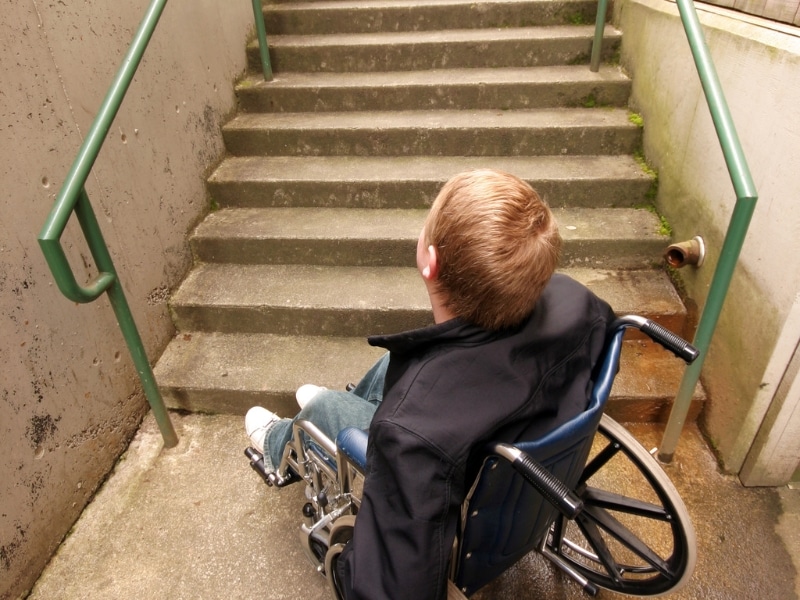
Accessible housing is crucial for individuals with disabilities. Unfortunately, finding such housing continues to be a significant challenge, particularly in Sydney. Despite various programs, the demand for accessible homes far exceeds the supply, leaving many struggling to secure suitable accommodation. This article explores why finding accessible housing is difficult, what challenges people face, and how the NDIS helps secure appropriate accommodation.
Why is accessible housing essential for people with disabilities?
Accessible housing is more than just a convenience for individuals with disabilities; it’s a fundamental requirement for their well-being. Here’s why:
- Independence: Accessible homes allow individuals to live independently. Features like ramps, wider doorways, and modified kitchens and bathrooms facilitate movement and give residents greater control over daily activities.
- Safety: Homes tailored to meet the physical needs of a person with a disability are designed with safety in mind. With the necessary modifications, daily tasks can become manageable.
- Social inclusion: An accessible home fosters social inclusion by allowing individuals to invite friends and family over and allowing them to participate more fully in the community.
- Mental health: Feeling safe and independent at home can significantly enhance mental well-being. Accessibility to housing reduces stress and anxiety associated with living in an environment unsuitable for an individual’s needs.
What are the main challenges in securing accessible housing?
Securing accessible housing involves several hurdles that often deter individuals from finding a suitable home. Let’s break them down:
- Limited availability: There aren’t enough accessible homes to meet demand. Many older buildings and properties were not designed with accessibility in mind, and retrofitting them is often too costly.

- High costs of modifications: Making homes accessible can be expensive. While the NDIS can assist with funding, only some changes are covered, and the approval process can take time.
- Lengthy waiting lists: Even when accessible homes become available, they are often in short supply, meaning people face lengthy waiting periods.
- Lack of public awareness: Many property developers and landlords are unaware of the need for accessible housing or are reluctant to invest in modifications.
- Zoning and building regulations: Stricter regulations for building new homes and converting existing structures to meet accessibility standards can limit housing supply.
Finding a universal design for accessible housing can be daunting for people with disabilities. It involves ensuring physical accessibility and creating a space that meets individual needs and enhances quality of life.
How does the NDIS help with accommodation and tenancy assistance?
The National Disability Insurance Scheme (NDIS) supports people with disabilities in accessing housing. Here’s how the NDIS assists with accommodation and tenancy:
- Accommodation assistance: The NDIS provides funding to meet the specific needs of individuals with high support requirements. This funding helps reduce the financial burden of finding accessible homes.
- Tenancy support: NDIS offers tenancy support to assist individuals with disabilities in securing and maintaining rental accommodation. Services like tenancy applications, lease negotiation, and assistance fulfilling tenancy obligations are covered.
- Home modifications: The NDIS also provides funding for improvements to existing homes, ensuring that individuals can live safely and comfortably in their current accommodation.
These services make the housing search easier, but affordability is another significant challenge.
Why is it difficult to find affordable, accessible housing?
Even with support from the NDIS, finding affordable, accessible housing is challenging. Here are the main reasons:
- Higher construction costs: Accessible homes require specialised features, such as wider hallways, ramps, and accessible bathrooms. These modifications increase the cost of construction, making these properties more expensive.
- Rising rental prices: The rental market in cities like Sydney is highly competitive, with prices continually rising. This makes it difficult for individuals on fixed incomes or disability support pensions to afford suitable housing.
- Limited housing stock: As mentioned earlier, the number of accessible homes is restricted, leading to higher demand and prices.
- Insufficient government support: While the NDIS provides some assistance, the lack of affordable housing means that even with funding, individuals may need help finding a home within their budget.
To overcome these barriers, it’s important to consider key factors when applying for accessible housing.
What should you consider when applying for accessible housing?
Securing accessible housing can be overwhelming, but careful planning can make the process smoother. Here’s what to consider:
- NDIS plan: Make sure your NDIS plan includes accommodation assistance. If you’re unsure, seek support from service providers to ensure your needs are covered.
- Location: Proximity to community services, healthcare providers, and accessible transport options should be a top priority when choosing a home.
- Modifications: Ensure that the property you’re considering can accommodate necessary changes and that these modifications will be funded under your NDIS plan.
- Tenancy rights: Understand your rights and obligations as a tenant. Ensure you know what the landlord is responsible for regarding property modifications and repairs.
- Budget: Calculate your budget, including rental costs, utilities, and potential modification expenses that the NDIS must fully cover.
If you’ve faced difficulties so far, don’t lose hope. There are ways to overcome these obstacles.
What steps can you take to secure the right accessible housing?
Here’s a step-by-step guide to help you secure the best accessible housing:
- Contact a service provider: Contact an NDIS service provider for assistance navigating the housing system.
- Review your NDIS plan: Ensure your plan covers accommodation support, including modifications or tenancy assistance.
- Submit housing applications: Apply to as many suitable properties as possible. Don’t hesitate to ask for NDIS-funded tenancy support.
- Plan for modifications: If the property you’re considering requires modifications, work with the NDIS to arrange funding and ensure timely completion.
- Stay persistent. Finding the proper accessible housing can take time, but you’ll increase your chances of success with the appropriate support.

Experience the freedom of accessible living
Need help securing a suitable, accessible home? Finding accessible housing may be challenging, but ensuring an appropriate home with the right resources and support is possible. Choice Care Australia is here to help individuals with disabilities navigate the housing market and access the necessary accommodation and tenancy assistance. Reach out to Choice Care Australia for expert assistance in finding accessible housing that suits your needs.


